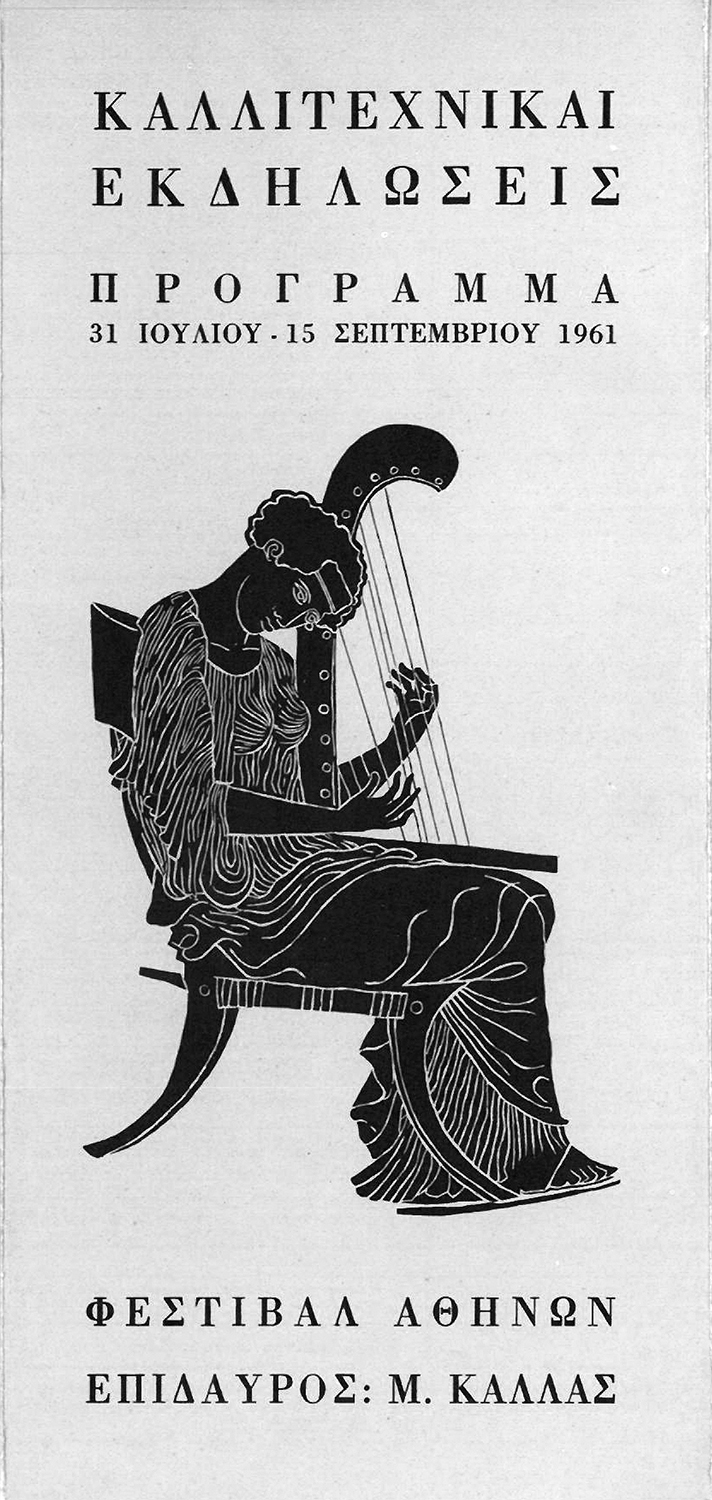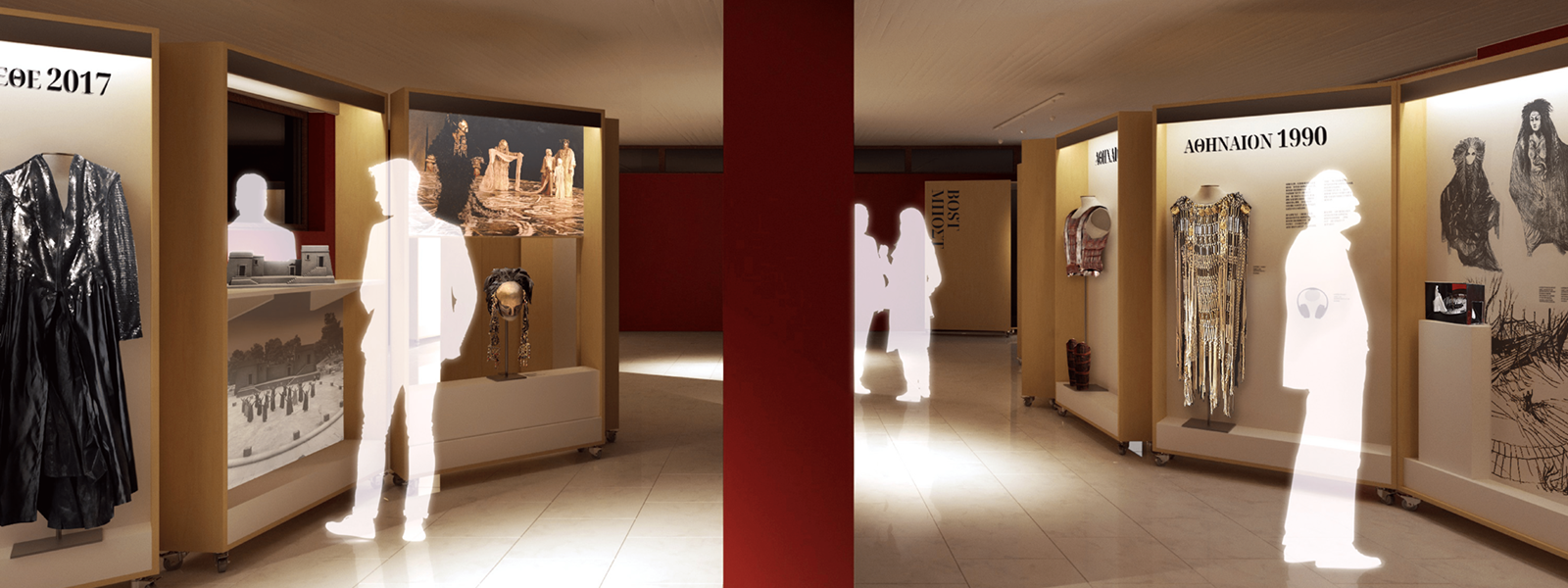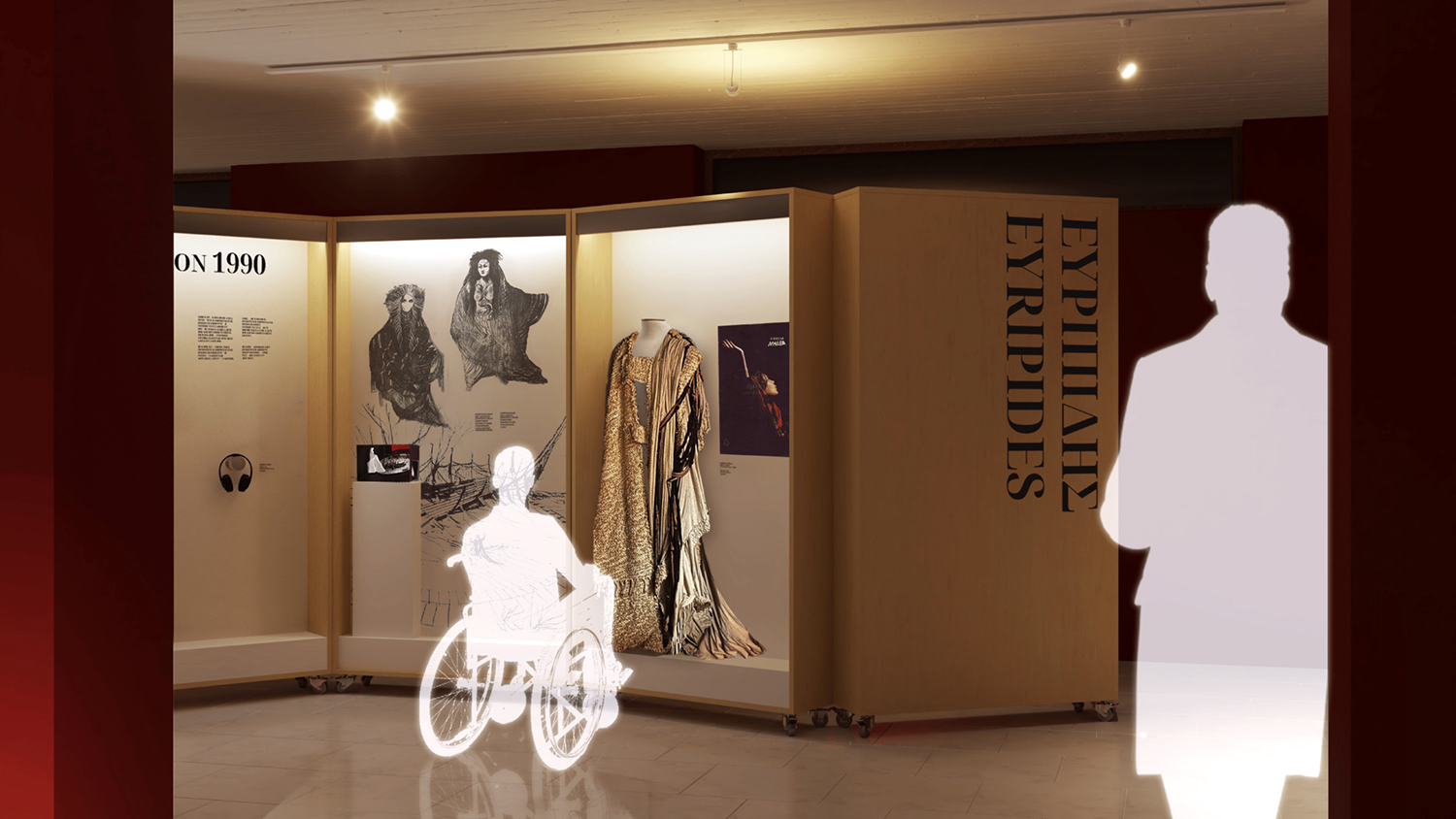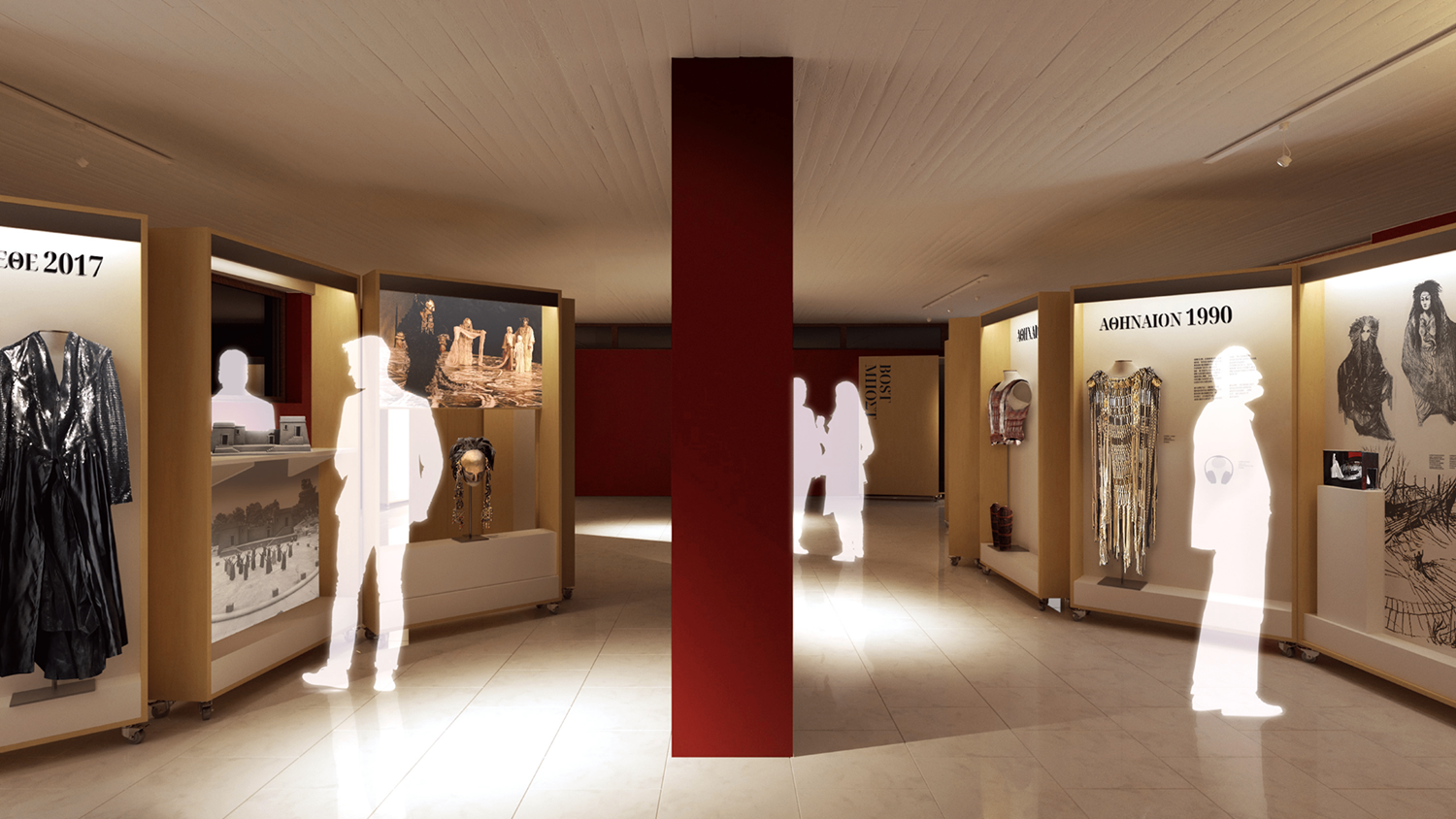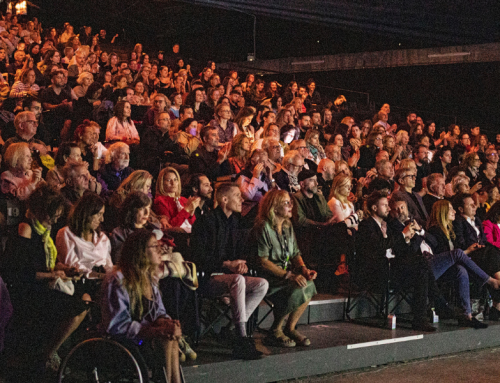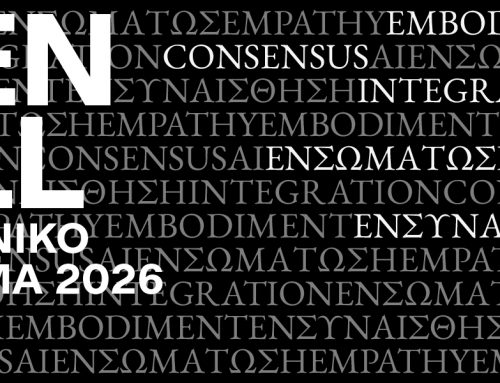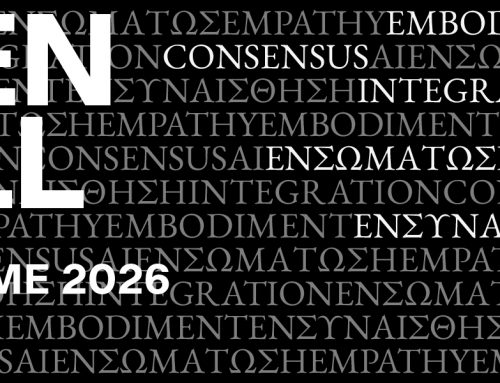An original exhibition on the many faces of Medea is held in the Ancient Theatre of Epidaurus exhibition hall, which is reopening this summer to the public, after a long hiatus of many years, thanks to the Athens Epidaurus Festival’s initiative and the valuable support of the Ministry of Culture.
Soon celebrating its 70th anniversary, the Festival offers to the public an additional cultural space, hosting a tribute to the iconic heroine, as she has been presented in the Ancient Theatre of Epidaurus since the 1950s.
The reopening of the exhibition hall will be inaugurated on July 7 with the periodic exhibition entitled Medea in Epidaurus, on the occasion of both the world premiere of Frank Castorf’s performance of Medea (21/7) and the 100th anniversary of the birth of Maria Callas, who in 1961 left her mark at the Ancient Theatre as Cherubini’s Medea.
The project was conceived by the Athens Epidaurus Festival’s Artistic Director, Katerina Evangelatos, who also assumed the overall supervision of its implementation. The exhibition’s curation, as well as the museological/museographic design, was carried out by Erato Koutsoudaki. The Assistant Professor at the Department of Theatre Studies of the National and Kapodistrian University of Athens, Panagiotis Michalopoulos, assumed academic advisory role to the exhibition while the research and documentation was conducted by the Theatre Researcher, Konstantina Nikolopoulou.
Medea in time
The exhibition, presented in the building designed by Aris Konstantinidis, focuses on the transformations of Medea from 1956 until today.
The public will be able to visit the exhibition hall from 7 July until 26 August, as it will remain open throughout the entire period of performances at the Argolic theatre. The exhibition showcases unique items from the archival collection of the Festival, as well as other cultural organisations and theatre companies that have staged Medea at the Ancient Theatre of Epidaurus, making a unique retrospective to the figures of Medea’s legendary character and also a journey through the history of theatre.
“The exhibition hall complements the experience of the visitors of Epidaurus”
The President of the Board of the Athens Epidaurus Festival, Mr. Dimitris Passas, welcomes the inauguration of the exhibition hall and underlines that: “A building of exceptional architectural value is given a different purpose and thus Epidaurus performances also acquire museum presence and visibility. In a short period of time, the Festival undertook and carried out this project complementing the experience of visitors to the Ancient Theatre. We express our gratitude to the Ministry of Culture for its support”.
“A mosaic synthesis of our Theatre’s contemporary history”
The Artistic Director of the Athens Epidaurus Festival, Katerina Evangelatos, stresses the importance of the reopening of the exhibition hall and also the purpose of the periodic exhibition on Medea:
“The Athens Epidaurus Festival, which will soon celebrate its 70th anniversary, is very excited to present an exhibition of multiple perspectives.
Drawing on the character of Medea, we invite you to take a journey through time. This tour is a tribute to all the people of the Theatre who have made their mark on the orchestra of Epidaurus. The twenty milestones, along with their components, make up a mosaic synthesis of our Theatre’s contemporary history, as they eloquently reveal aesthetic trends and currents, even entire “schools”.
Through this exhibition, we are reopening to the public a space that had remained closed for many years. We hope that from now on it will become a vibrant festival hub in creative dialogue with the performances taking place within the Ancient Theatre of Epidaurus, hosting a variety of events. I would like to extend my heartfelt thanks to all those who worked for the realisation of this exhibition and I hope you enjoy this journey”.
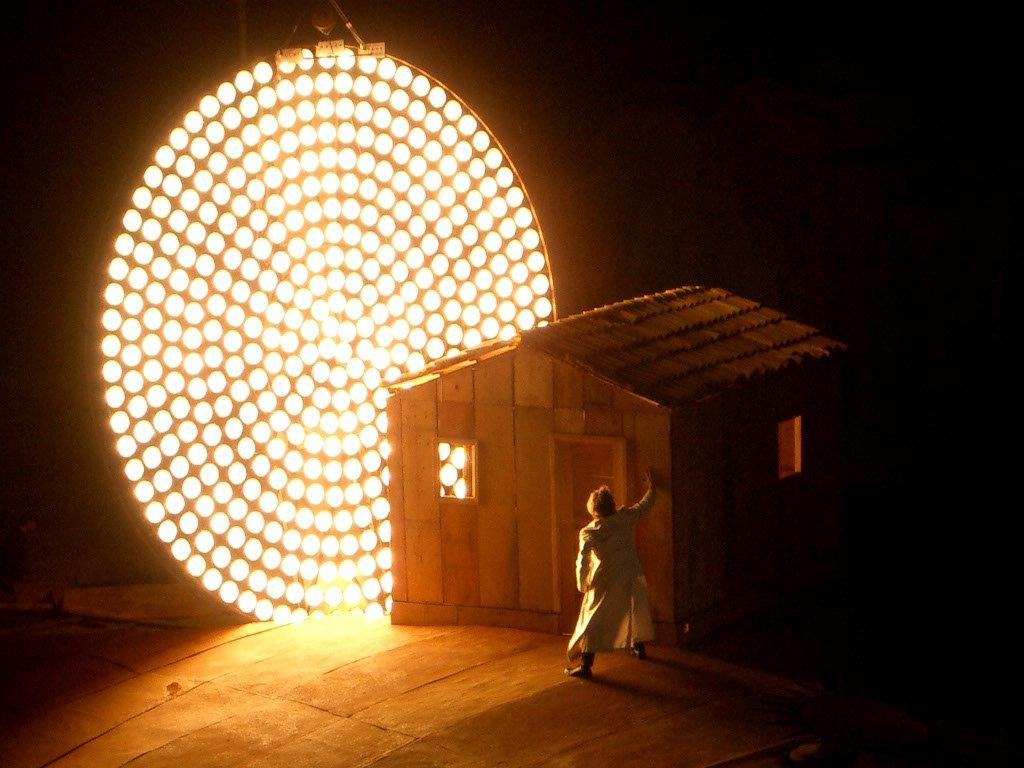
In search of the traces of theatrical performances
The architect and the exhibition’s curator, Erato Koutsoudaki, notes:
“What is left of a theatrical performance when the lights go out? This is one of the questions posed by the first periodic exhibition of the hall’s new era along with another one: How does theatrical form evolve over the years? How do different creative groups at different times choose to interpret the same work?
Twenty-two Medea productions will have passed by the end of this season from the Ancient Theatre of Epidaurus, with the first being staged in 1956, just one year after the officially first of the Epidaurus performances. Euripides’ Medea, of course, but also Cherubini’s operatic version, Bost’s parodic Medea, and Frank Castorf’s forthcoming composition.
Each performance is introduced to us through the traces it has left – some have left numerous while others not as many – giving a platform not only to the director’s work, or the work of the leading actress in the title role and of the other actors and actresses, but also of those who worked for it, on both a creative and technical level. Photographs, excerpts from recorded performances, costumes, stage models and costume designs, stage guides, programmes and stage directing notebooks, scores and rare audio exhibits make up the universe of the exhibition Medea in Epidaurus.
Therefore, on the occasion of Medea, the exhibition attempts to propose a penetrating look in front of and behind theatrical lights, even when they have been extinguished and the theatrical act is now a historical event”.
The exhibition will be open from July 7 to August 26, on the days of performances presented as part of the Athens Epidaurus Festival (Fridays & Saturdays) from 18:00 to 01.00.
Free entrance.
The exhibition Medea in Epidaurus is organised by the Athens Epidaurus Festival with the support of the Ministry of Culture and Sports.
